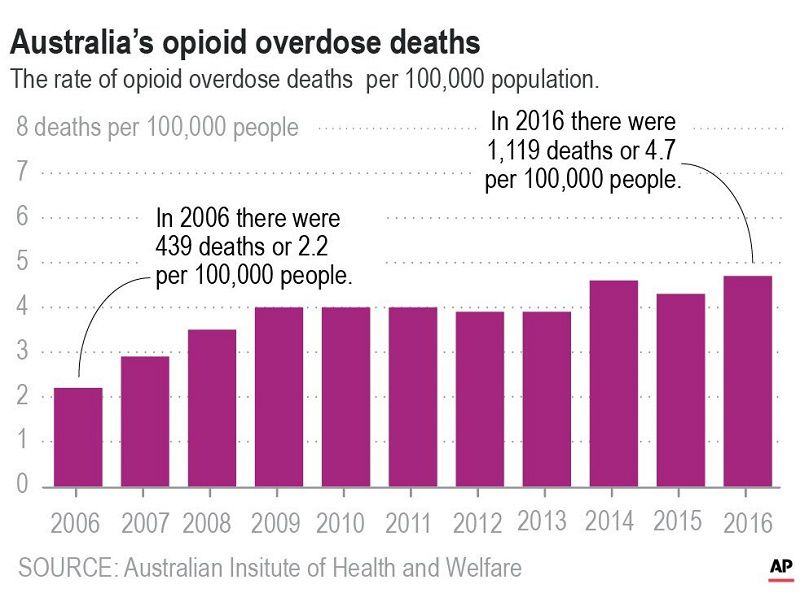Canadian researchers may have accidentally stumbled on a way to reduce opioid use after a study into medical hash found that chronic pain patients use fewer opioids when given medical cannabis.
Opioid use among chronic pain patients is a huge worry. According to the Institute of Health and Welfare, opioid deaths account for 62% of drug-induced deaths in Australia. Currently, prescription opioids are killing more people than heroin – but millions of Australians are regularly taking them for chronic pain.
However, there may be a better way, or rather, a greener one.
The study, conducted by the American Academy of Pain Medicine monitored the treatment of 751 patients with chronic pain conditions. Each of these patients was started on a course of medical cannabis between 2015 and 2019. Throughout that time, researchers measured the severity of each participants pain every month for a full year.

The results? Within the first month of taking medical cannabis, patients had fewer headaches, fatigue, nausea, and anxiety. After three months patients physical and mental health had improved significantly – and many of them reported feeling less pain.
However, the interesting results came at the end of the study. After finishing a year’s dose on medical cannabis, researchers found that patients who took opioids had significantly reduced their opioid use. They also felt less pain than before. Amazingly, the study was able to conclude that medical cannabis was able to treat the patient’s pain without interference from opioids. Brilliant.
Here’s the official conclusion of the study:
Taken together, the findings of this study add to the cumulative evidence in support of plant-based medical cannabis as a safe and effective treatment option and potential opioid medication substitute or augmentation therapy for the management of symptoms and quality of life in chronic pain patients.
When talking about the study, America’s National Organization for the Reform of Marijuana Law’s Deputy Director Paul Armentano said:
These outcomes add to the growing body of literature supportive of the therapeutic use of cannabis as an opioid-sparing analgesic agent.
Turns out, he’s right about that literature. This study isn’t the first to connect more medical marijuana to less opioids. Three other recent American studies have reached the same conclusion. A University of Michigan study even found that medical cannabis decreases opioid use in chronic pain patients by 64%.
That’s got us pondering – what else can medical pot do?








